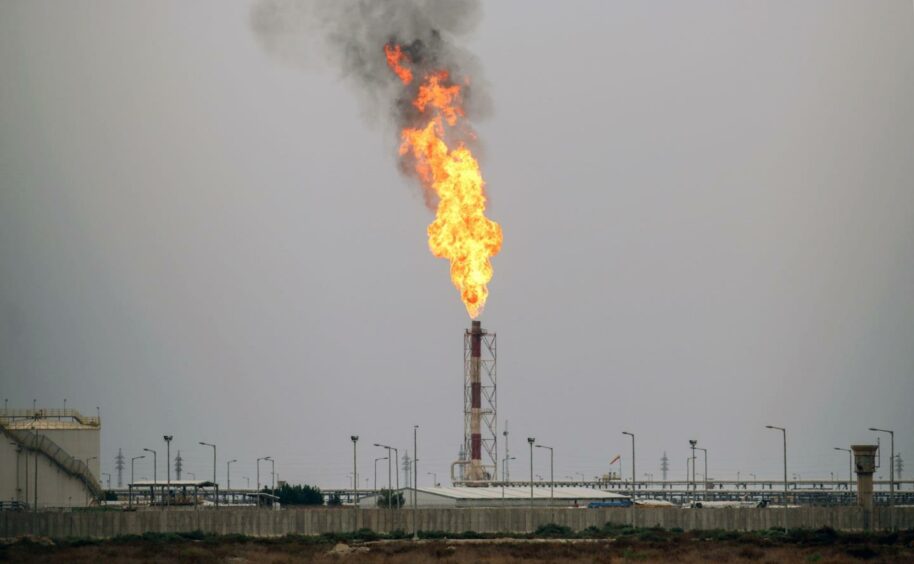
Halliburton and ExxonMobil are in talks over the latter’s attempt to sell a a stake in the West Qurna-1 oil field in southern Iraq, according to the country’s energy minister.
Iraq wants a US partner for Exxon’s stake, Oil Minister Ihsan Abdul Jabbar told reporters in Baghdad. If the talks with Halliburton fail, Iraq will step in to buy the stake, he added. He said a few days ago that Iraqi state company Basra Oil Co. could be a potential buyer.
Halliburton, which mainly provides oil-field services, has previously said it’s inaccurate that the company is interested in buying Exxon’s holding.
“Basra Oil wants to acquire Exxon stake, but to maintain the balance of partners and market, we support a U.S. partner,“ Jabbar said.
Read more: Halliburton Bandied About as Exxon Replacement in Iraq Field
The minister said he expects OPEC+ to increase production by 400,000 barrels in January. He added that the emergence of the omicron coronavirus variant hasn’t had much impact on global oil demand.
The 23-nation group, led by Saudi Arabia and Russia, decided early this month to raise output in January by that amount. But it kept its meeting “in session,” meaning that the alliance can change its plan rapidly if oil-market conditions deteriorate.
Exxon’s Exit
Halliburton surfaced as a potential buyer of the 32.7% stake in West Qurna-1, one of the world’s biggest oil fields, more than a month ago.
Exxon was among the first Western oil explorers allowed into Iraq in 2010 as the Middle Eastern nation sought to rebuild its energy industry following the fall of Saddam Hussein and years of conflict. Before that, Iraq’s crude bounty had been mostly off limits to foreigners for around 40 years.
Exxon more recently soured on West Qurna amid tough contractual terms, OPEC supply constraints and ongoing political instability. Iraq is the cartel’s biggest producer after Saudi Arabia.
While Halliburton has long been one of Exxon’s primary contractors at the field, taking an actual ownership stake would be a rarity for a company focused on mapping, fracking and rehabilitating assets owned by other companies. West Qurna-1 is a 20 billion-barrel deposit.
Abdul Jabbar also said his ministry is in discussions with Chevron Corp. on the economic model of the contract for its potential investment in the southern city of Nasiriya. He’s expected to sign a deal with US firm in the first quarter of 2022.
Iraqi National Oil Co. would be Chevron’s partner in the oil exploration investment with a 40% stake in the venture. The US oil giant will conduct exploration work in the city, with an estimated daily output of 600,000 barrels for at least 10 years, the minister said.
Other highlights from the minister’s comments:
- Iraq is working to create a sovereign fund that aims to finance energy projects in the country to cut down imports
- Iraq plans to capture all associated gas flaring, which ranges between 4 billion to 5 billion standard cubic feet per day
Current gas capturing projects in Iraq are worth $7 billion - Iraq in talks with Qatar to import gas via pipeline and also to invest in any gas-pipeline project from Qatar to Kuwait
- Iraq set to award front-end engineering designs or FEED work to the U.S.; KBR Inc. is part of TotalEnergies SE’s gas-capturing deal signed in September
- Iraq is currently rehabilitating its export pipeline to Ceyhan that was damaged by ISIS, and is now 85% complete
- On climate change, Iraq is committed to switching all liquid fuels used for power plants to gas